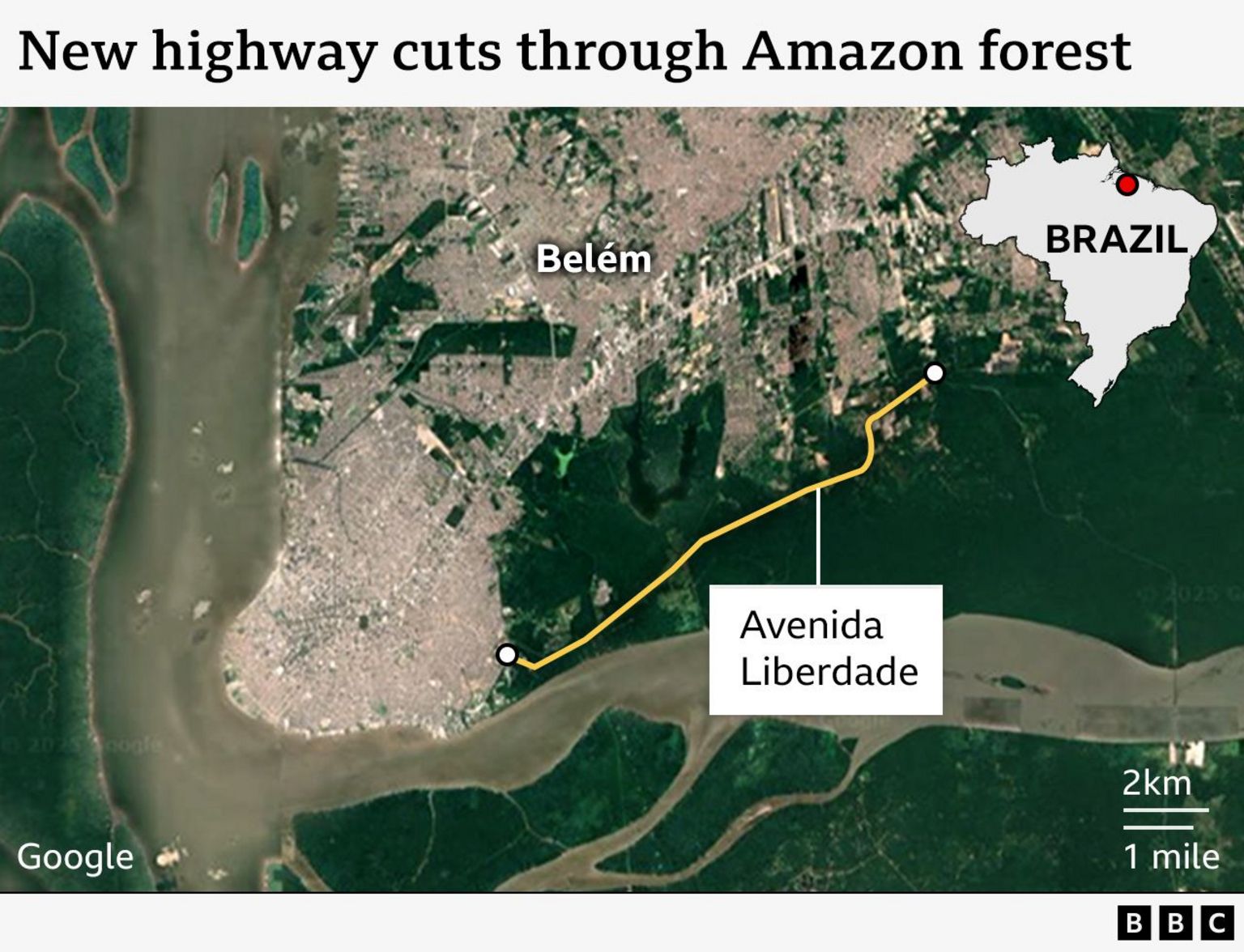
A new four-lane highway cutting through tens of thousands of acres of protected Amazon rainforest is being built for the COP30 climate summit in the Brazilian city of Belém.
The Amazon plays a vital role in absorbing carbon for the world and providing biodiversity, and many say this deforestation contradicts the very purpose of a climate summit.
Along the partially built road, lush rainforest towers on either side – a reminder of what was once there. Logs are piled high in the cleared land which stretches more than 13km (8 miles) through the rainforest into Belém.
Diggers and machines carve through the forest floor, paving over wetland to surface the road which will cut through a protected area.
The road leaves two disconnected areas of protected forest. Scientists are concerned it will fragment the ecosystem and disrupt the movement of wildlife.
The Brazilian president and environment minister say this will be a historic summit because it is “a COP in the Amazon, not a COP about the Amazon”.
Adler Silveira, the state government’s infrastructure secretary, listed this highway as one of 30 projects happening in the city to “prepare” and “modernise” it, so “we can have a legacy for the population and, more importantly, serve people for COP30 in the best possible way”.
Speaking to the BBC, he said it was a “sustainable highway” and an “important mobility intervention”.
He added it would have wildlife crossings for animals to pass over, bike lanes and solar lighting. New hotels are also being built and the port is being redeveloped so cruise ships can dock there to accommodate excess visitors.
Brazil’s federal government is investing more than $81m (£62m) to expand the airport capacity from “seven to 14 million passengers”.
João Alexandre Trindade da Silva, who sells Amazonian herbal medicines in the market, acknowledges that all construction work can cause problems, but he felt the future impact would be worth it.
“We hope the discussions aren’t just on paper and become real actions. And the measures, the decisions taken, really are put into practice so that the planet can breathe a little better, so that the population in the future will have a little cleaner air.”
That will be the hope of world leaders too who choose to attend the COP30 summit.
Scrutiny is growing over whether flying thousands of them across the world, and the infrastructure required to host them, is undermining the cause.